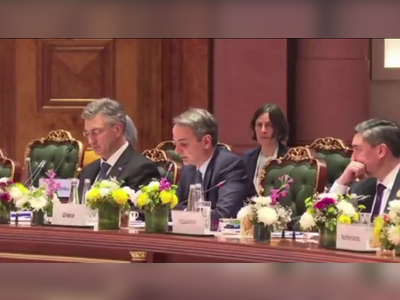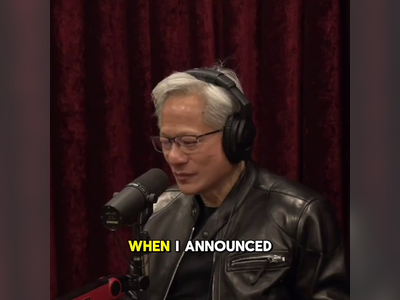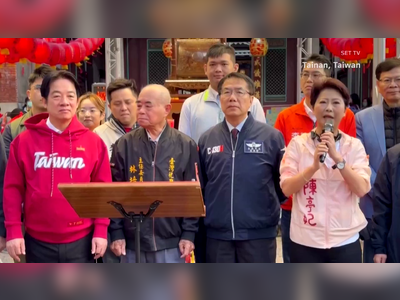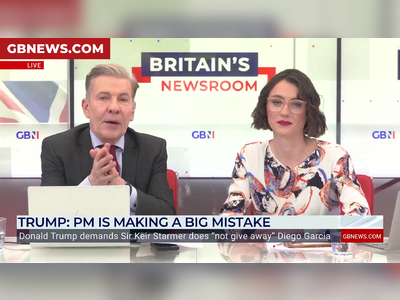
Universal basic income can be the worst of all worlds - but ‘free money’ schemes do work | Gaby Hinsliff
A trial in Wales for care leavers is brave and imaginative, but a benefits system must work for all, says Guardian columnist Gaby Hinsliff
It is the unspoken promise of parenthood, the deal millions make as their fledglings fly the nest: that in an emergency, they can always come fluttering back. Even if they never have to cash that unwritten cheque, just knowing it’s there can be enough to see them through the wobbly early years of independence. That place is home. It is what gives young adults the confidence to flee a toxic relationship or a dodgy flatshare, knowing they’re not going to end up on the street, or to stick it out in the kind of insecure careers where persistence ultimately pays off. But home isn’t like that for everyone, and shamefully it’s least like that for children parented by the state.
Once they turn 16 they’re no longer looked-after children, a euphemism already covering a multitude of sins, but “care leavers”. At best that means staying with a loving foster family until they’re ready to leave, but at worst it means the kind of downhill slide that explains why too many rough sleepers have previously been in care. Almost half of care leavers have mental health issues and more than a third aren’t in education, employment or training between the ages of 19 and 21. Although the state now offers a “personal adviser” to guide them into their 20s, with the best will in the world it’s not going to be like crying on a parental shoulder.
And that’s the backdrop to the Welsh government’s brave and imaginative decision this week to trial a universal basic income (UBI) of £1,600 a month – equivalent to an annual salary of just over £19,000 – to care leavers. Brave, because it invites not just predictable tabloid outrage at handing out “money for nothing” but also understandable resentment from workers slogging away at minimum-wage jobs that they don’t enjoy for the same money. But imaginative, because if it works – which will mean coupling that money with the kind of intensive support and guidance that care leavers should frankly be getting anyway – it opens up a much broader debate about the future of welfare. It’s road-testing an idea that will make instinctive sense to most parents, which is that the emotional security money buys is not nothing; indeed, for some, it might actually be everything.
A now famous trial of UBI for unemployed people in Finland, originally designed to test whether the carrot of free money was more effective than the stick of sanctions in getting people back into jobs, found only a slight increase in days worked but a much bigger impact on happiness and health. Recipients reported less stress, depression, sadness and loneliness than the control group, plus more confidence in the future. More surprisingly, they also reported higher cognitive skills – things such as the ability to remember, learn and concentrate – and higher levels of trust in their fellow Finns and in public institutions. If buying happiness, focus and trust doesn’t sound like a terribly efficient use of public money then you are not thinking hard enough about how much unhappiness and all its spiralling consequences – from anxiety and depression to drug and alcohol addiction, relationship breakdown, or the lifelong emotional and educational impact on children’s lives of having parents continually pushed to the limit – costs the taxpayer. Or just how much public trust in institutions from the police to public health experts turned out to matter in a pandemic, or how easily the politics of hate feeds off misery and suspicion.
What’s interesting about the Finnish findings is that they chime with research from developmental economists suggesting that giving away cold hard cash can be a surprisingly effective way of delivering aid. As the Dutch historian and UBI enthusiast Rutger Bregman has repeatedly argued, the myth that poor people will only blow it on booze and cigarettes is just that: people counting every penny tend to know exactly what they’d do with a bit more, using it strategically and frugally. If anything it’s grinding deprivation that drives humans towards bad choices, and money that helps us make better ones, lifting the fog of panic and exhaustion and helplessness that accompanies poverty and giving recipients the confidence to take risks. The catch for UBI advocates, however, is that the magic of universal basic income may well lie in the last two words, not the first.
For many the whole point is the universality, or the dream that free money for everyone will miraculously engender a warm fuzzy feeling of togetherness even in those too wealthy to actually benefit (because for them UBI would be effectively taxed away) while delivering on the Keynesian dream of prosperity buying ever-expanding leisure. But that’s not where the evidence points. The secret sauce seems to be providing people who just can’t see another way out with enough free money to catch their breath and make plans. An extra pittance for everyone regardless of need – which is what every economically realistic proposal for UBI I’ve ever seen ends up apologetically boiling down to, given the exorbitant cost – is the worst of all worlds; not quite enough to be meaningful to those who could really benefit, but still too expensive to be politically plausible. Better to start by funding the existing welfare system properly, recognising that the benefit cuts of the past decade went far too deep and left millions without enough to live on, and then targeting those for whom the security of a basic income could be genuinely life-changing.
In San Francisco and Vancouver, there have been small but fascinating pilots involving free cash transfers to homeless people. The success of furlough in keeping people attached to the workplace despite being temporarily out of a job suggests another possible avenue. Most people who lose their jobs aren’t out of work for long, but for those who don’t have savings, even a few months on benefits that are a fraction of their normal salary mean racking up debt that can leave long-term scars. Some kind of time-limited basic income for newly redundant people could bridge that gap, and give people a chance to retrain; it could be useful too in softening the transition to net zero, offering people who lose jobs in dying fossil-fuel industries time to rethink their futures. The possibilities are exciting, but only if we let go of the utopian theory and focus relentlessly on what actually works. It’s not about money for nothing. It’s money for things that might just turn out to be priceless.
Once they turn 16 they’re no longer looked-after children, a euphemism already covering a multitude of sins, but “care leavers”. At best that means staying with a loving foster family until they’re ready to leave, but at worst it means the kind of downhill slide that explains why too many rough sleepers have previously been in care. Almost half of care leavers have mental health issues and more than a third aren’t in education, employment or training between the ages of 19 and 21. Although the state now offers a “personal adviser” to guide them into their 20s, with the best will in the world it’s not going to be like crying on a parental shoulder.
And that’s the backdrop to the Welsh government’s brave and imaginative decision this week to trial a universal basic income (UBI) of £1,600 a month – equivalent to an annual salary of just over £19,000 – to care leavers. Brave, because it invites not just predictable tabloid outrage at handing out “money for nothing” but also understandable resentment from workers slogging away at minimum-wage jobs that they don’t enjoy for the same money. But imaginative, because if it works – which will mean coupling that money with the kind of intensive support and guidance that care leavers should frankly be getting anyway – it opens up a much broader debate about the future of welfare. It’s road-testing an idea that will make instinctive sense to most parents, which is that the emotional security money buys is not nothing; indeed, for some, it might actually be everything.
A now famous trial of UBI for unemployed people in Finland, originally designed to test whether the carrot of free money was more effective than the stick of sanctions in getting people back into jobs, found only a slight increase in days worked but a much bigger impact on happiness and health. Recipients reported less stress, depression, sadness and loneliness than the control group, plus more confidence in the future. More surprisingly, they also reported higher cognitive skills – things such as the ability to remember, learn and concentrate – and higher levels of trust in their fellow Finns and in public institutions. If buying happiness, focus and trust doesn’t sound like a terribly efficient use of public money then you are not thinking hard enough about how much unhappiness and all its spiralling consequences – from anxiety and depression to drug and alcohol addiction, relationship breakdown, or the lifelong emotional and educational impact on children’s lives of having parents continually pushed to the limit – costs the taxpayer. Or just how much public trust in institutions from the police to public health experts turned out to matter in a pandemic, or how easily the politics of hate feeds off misery and suspicion.
What’s interesting about the Finnish findings is that they chime with research from developmental economists suggesting that giving away cold hard cash can be a surprisingly effective way of delivering aid. As the Dutch historian and UBI enthusiast Rutger Bregman has repeatedly argued, the myth that poor people will only blow it on booze and cigarettes is just that: people counting every penny tend to know exactly what they’d do with a bit more, using it strategically and frugally. If anything it’s grinding deprivation that drives humans towards bad choices, and money that helps us make better ones, lifting the fog of panic and exhaustion and helplessness that accompanies poverty and giving recipients the confidence to take risks. The catch for UBI advocates, however, is that the magic of universal basic income may well lie in the last two words, not the first.
For many the whole point is the universality, or the dream that free money for everyone will miraculously engender a warm fuzzy feeling of togetherness even in those too wealthy to actually benefit (because for them UBI would be effectively taxed away) while delivering on the Keynesian dream of prosperity buying ever-expanding leisure. But that’s not where the evidence points. The secret sauce seems to be providing people who just can’t see another way out with enough free money to catch their breath and make plans. An extra pittance for everyone regardless of need – which is what every economically realistic proposal for UBI I’ve ever seen ends up apologetically boiling down to, given the exorbitant cost – is the worst of all worlds; not quite enough to be meaningful to those who could really benefit, but still too expensive to be politically plausible. Better to start by funding the existing welfare system properly, recognising that the benefit cuts of the past decade went far too deep and left millions without enough to live on, and then targeting those for whom the security of a basic income could be genuinely life-changing.
In San Francisco and Vancouver, there have been small but fascinating pilots involving free cash transfers to homeless people. The success of furlough in keeping people attached to the workplace despite being temporarily out of a job suggests another possible avenue. Most people who lose their jobs aren’t out of work for long, but for those who don’t have savings, even a few months on benefits that are a fraction of their normal salary mean racking up debt that can leave long-term scars. Some kind of time-limited basic income for newly redundant people could bridge that gap, and give people a chance to retrain; it could be useful too in softening the transition to net zero, offering people who lose jobs in dying fossil-fuel industries time to rethink their futures. The possibilities are exciting, but only if we let go of the utopian theory and focus relentlessly on what actually works. It’s not about money for nothing. It’s money for things that might just turn out to be priceless.










